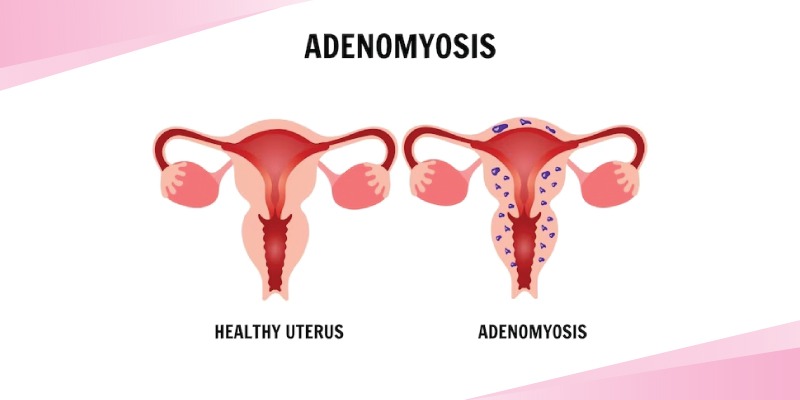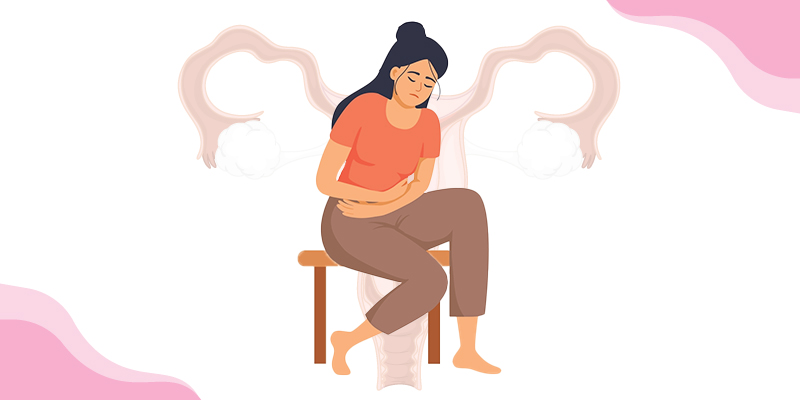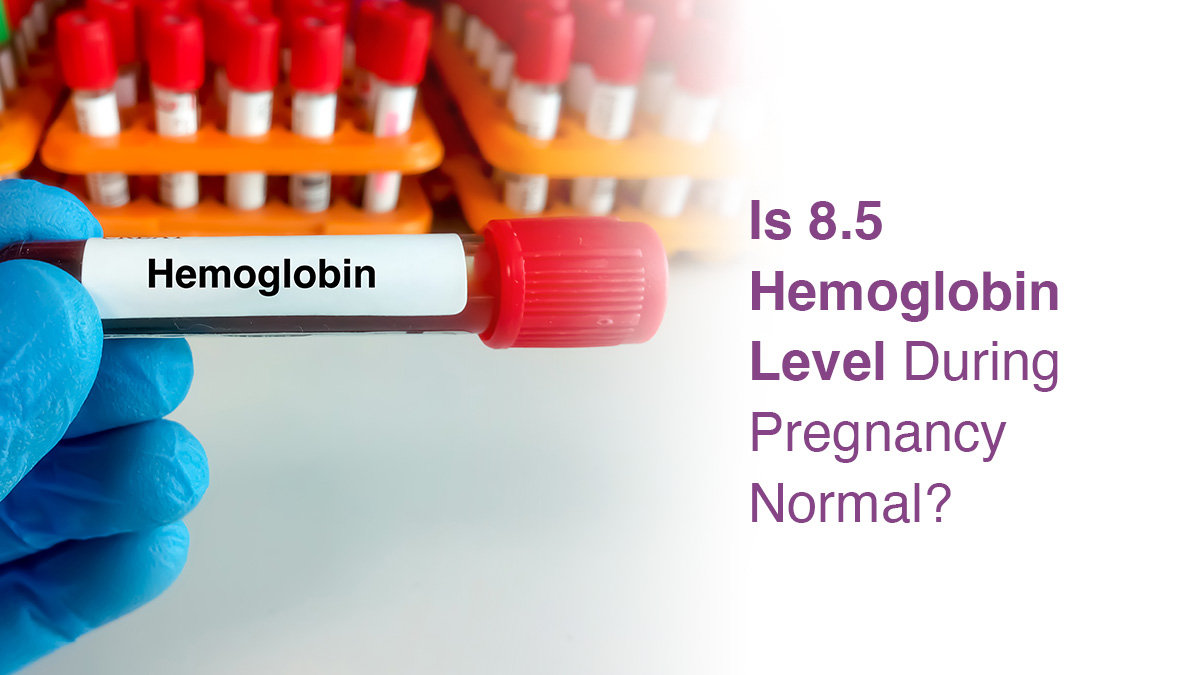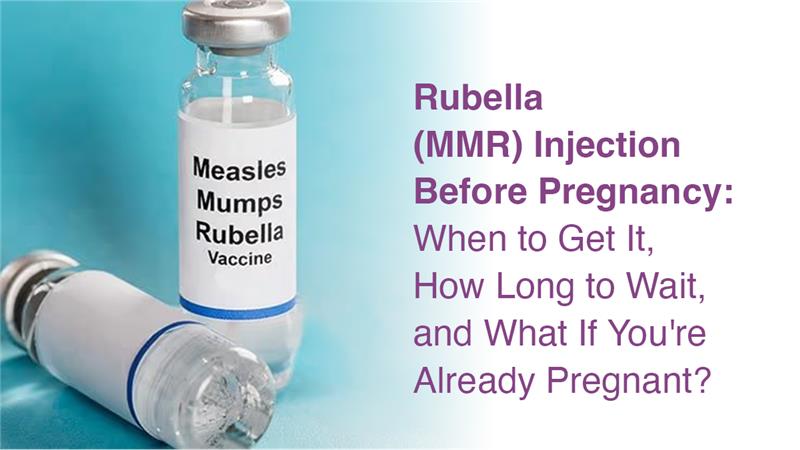
Adenomyosis – Everything you need to know

Uterine adenomyosis is more than just a painful period. To understand adenomyosis it is important to understand the anatomy of the uterus.
The uterus is composed of the below-mentioned layers.
Myometrium: The outer smooth muscle.
Endometrium: The inner layer that grows during the menstrual cycle and lines the uterus to receive a fertilized egg.
The “junctional zone” or “inner myometrium” is the area situated between these two layers which separate the endometrium and the muscular layer. In a healthy uterus, the thickness of this area ranges from 2-8 mm.
What is adenomyosis?
When a woman has Adenomyosis, the endometrial tissue grows into the uterine muscle wall, thickening the junctional zone. In the case of Adenomyosis, the thickness of this junctional zone is 12mm or more. This leads to an enlarged uterus and other uncomfortable and painful symptoms. The presence of cysts in the myometrium also indicates towards Adenomyosis condition.
Middle-aged women over 35 years of age or women with endometriosis have high chances of developing Adenomyosis.
Causes of adenomyosis
The common causes of adenomyosis are:
- Hormonal imbalances due to PCOS, or other conditions
- Disorders of the immune system and genetics
- Poor lifestyle choices and stress
- Multiple pregnancies and uterine surgeries or uterine trauma
- Chronic inflammation of the uterine lining due to other conditions
Symptoms of adenomyosis
- Painful cramps or pelvic pain
- Prolonged and heavy menstrual bleeding
- Painful sexual intercourse
- Infertility
These symptoms can indicate other underlying issues too and are similar to those of Endometriosis.
Stages of adenomyosis
There are 4 stages of adenomyosis:
Early
There is minimal infiltration of endometrial tissue in the uterine wall in early adenomyosis. Its symptoms are non-existent or mild. However, you should not ignore unusual menstrual discomfort, pain, or cycle duration. Early diagnosis and prompt treatment are key to slowing the progression of the disease. This also increases your chances of living a normal life.
Moderate
The uterine wall is significantly infiltrated in moderate cases. The symptoms of moderate adenomyosis include heavy and painful periods.
Severe
Severe adenomyosis starts to affect the shape and size of your uterus. The symptoms intensify as uterine infiltration increases and may affect the patient’s daily activities.
Advanced
In the advanced stage, the uterus is extensively damaged. The symptoms, such as pelvic pain and nausea, may become chronic. It may lead to inter-menstrual bleeding and painful intercourse.
Complications of adenomyosis
Adenomyosis has adverse effects on the everyday life of affected women.
Women with adenomyosis are prone to a high risk of developing anaemia, infertility, and other uterine conditions.
How does adenomyosis affect fertility?
Various complications concerning fertility arise in women, as the uterus becomes swollen and bulky due to adenomyosis. It results in an unsuitable uterine environment which leads to implantation issues and miscarriage risks.
Based on studies it has been indicated that adenomyosis coexists with other conditions such as endometriosis and polyps etc. that cause fertility issues. Below are a few ways adenomyosis can impact fertility.
- Issues in conception: The deformed structure of the uterus caused due to the thickening of the junctional zone, might block the movement of the sperm and immature eggs inhibiting conception.
- Issues in endometrial function: The function and receptivity of the endometrium are impaired due to inflammation and increased production of estrogen hormone.
- Impaired Implantation: High chances of failed implantation are present as the endometrial tissue that invades into the myometrium continues to shed and bleed as it was designed to function.
Adenomyosis and Pregnancy:
Adenomyosis affects a woman’s ability to conceive. But even though if a woman conceives, the pregnancy has associated risks such as miscarriage, low birth weight, pre-term labour, premature rupture of the amniotic membranes, uterine infections, etc.
Treatment options for Adenomyosis in infertility:
Getting the right and suitable fertility treatment becomes essential in case if you want to consider having a baby in the future.
Medical or surgical options are available to treat Adenomyosis and to enhance positive pregnancy outcomes.
Hormonal treatment such as Gonadotrophin-releasing hormone agonist (GnRH-a) is recommended to control and reduce the hormonal impact and inflammation leading to improved chances of natural pregnancy.
Living with Adenomyosis
A chronic condition, such as adenomyosis, can significantly disrupt life and have psychological consequences. Emotional support from family, friends, partners, and social communities becomes necessary for the patient.
Living with pain and persistent discomfort in adenomyosis is very difficult. In severe and advanced forms, the condition may interfere with daily activities and make the patient dependent on others. However, the medical facilities in India have advanced significantly, and adenomyosis treatments and management strategies are accessible to help ladies live fulfilling lives.
It all concludes down to:
6 in 10 women over the age of 40 are affected with Adenomyosis. What can feel like severe menstrual cramps and pelvic pain can be associated with Adenomyosis. It has adverse effects not only on fertility but also on the overall health of a woman.
Preconception diagnosis, counselling, and awareness are required for early diagnosis and treatment if present.
Get regular gynecological check-ups to get control over your reproductive health.


fill up the form to get a
Free Consultation
Avail 0% interest on EMI
All Procedures | No Upper Limit
Frequently Asked Questions
Can I conceive with adenomyosis?
Is adenomyosis high risk in pregnancy?
Can a woman with adenomyosis do IVF?
How we reviewed this article:
- Current Version
- August 30, 2024 by Oasis Fertility
- October 16, 2023 by Oasis Fertility
- October 11, 2023 by Oasis Fertility
- October 6, 2023 by Oasis Fertility






